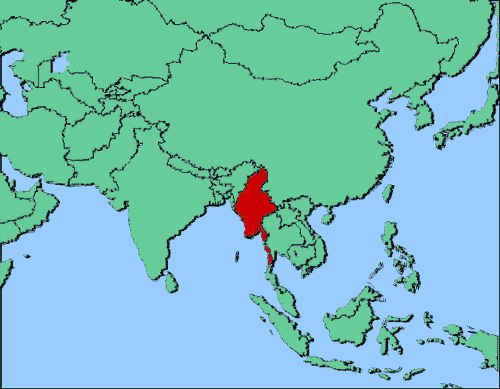
Circle the area on this map

A. The CIA World Factbook says 87.9% of the nation’s people are Buddhist, 6.2% Christian, 4.3% Muslim, 0.8% Animist, 0.5% Hindu, 0.2% other and 0.1% none. The Dutch tourist said he thought children were playing the loud music and did not know the building was a Buddhist religious center.
D. Bangladesh was the Muslim-majority part of the area known as Bengal. When the British colony of India was partitioned into the majority-Hindu and majority-Muslim nations of India and Pakistan in 1947, what is now Bangladesh became East Pakistan. Bangladesh won a war for independence from the rest of Pakistan in 1971.
B. French Indochina included what is now Cambodia, Laos, Vietnam and the province of Guangzhouwan leased from China. From the 15th century through the 20th century, rival European colonial powers conquered and exploited the lands and people of the Americas, Australia and much of Africa and Asia. Burma gained independence in 1948.
C. A military dictatorship seized control of the country in 1962 and ruled until 2011. Former military leaders still wield considerable power in Myanmar, but political prisoners have been released and the former opposition won elections last year. The White House said it was removing the sanctions to promote the emerging democracy.